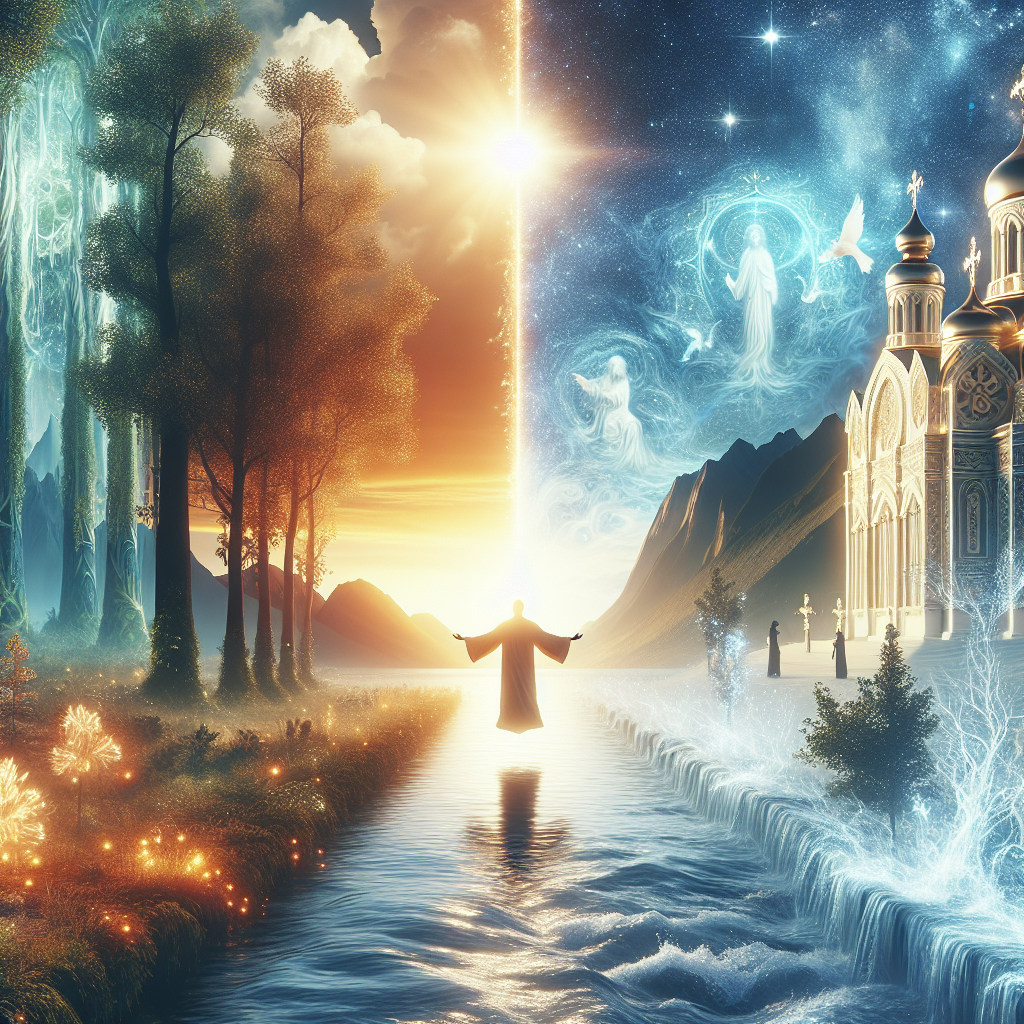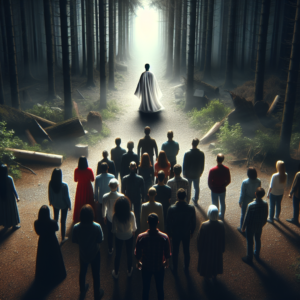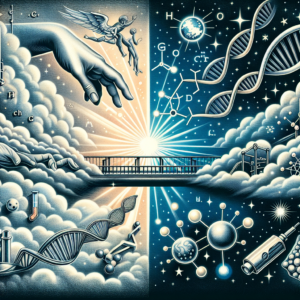Spiritual Devotional about Spirituality vs. Religion
Spirituality vs. Religion: Finding Your Sacred Path
Hello, beloved readers! 🌟
Today, we’re diving into a profound topic: the difference between spirituality and religion. These two terms often get used interchangeably, but they hold distinct meanings and can profoundly shape our journey of faith. Let’s explore these concepts with an open heart and a joyful spirit, always seeking to grow closer to God’s love.
Understanding Religion
Religion is often seen as a structured system of beliefs, practices, and moral values shared by a community. Think of it as an organized pathway that offers a roadmap for understanding the divine. Religions provide rituals, sacred texts, and traditions that help us connect with God and guide our moral compass.
In Christianity, for example, we have the Bible as our holy scripture, church gatherings, and sacraments like baptism and communion that anchor our faith within a community context. The book of James beautifully encapsulates the essence of true religion:
"Religion that God our Father accepts as pure and faultless is this: to look after orphans and widows in their distress and to keep oneself from being polluted by the world." – James 1:27 (NIV)
Religion encourages us to practice love, compassion, and righteousness, serving as both a guardrail and a springboard for our spiritual journey.
Discovering Spirituality
Spirituality, on the other hand, is more personal and individualistic. It’s about seeking a direct relationship with the Divine and tapping into the sacredness within and around us. Spirituality transcends doctrines and rituals; it’s a journey inward, a quest for inner peace and a deeper understanding of God’s presence.
Everyone’s spiritual journey is unique. It’s about connecting with God in a way that resonates personally, whether through nature, music, prayer, meditation, or acts of kindness. Spirituality often emphasizes inner growth, self-awareness, and the transformative power of love and grace.
The Bible inspires us to seek this deeper connection with God. Paul’s prayer for the Ephesians underscores the beauty of a personal spiritual journey:
"I pray that out of his glorious riches he may strengthen you with power through his Spirit in your inner being, so that Christ may dwell in your hearts through faith." – Ephesians 3:16-17a (NIV)
Bridging the Gap
While religion offers a communal structure and shared beliefs, spirituality invites us to a deeply personal experience of the Divine. These two aspects of faith don’t have to be at odds; in fact, they can beautifully complement each other. Religion can provide a foundation, a community, and traditions that enrich our spiritual journey, while spirituality allows for personal encounter and growth in God’s presence.
Let’s consider the practices of Jesus. He regularly attended the synagogue, respecting the religious customs of His time (Luke 4:16). Yet, He also withdrew to solitary places to pray and connect with the Father in a deeply personal way (Mark 1:35). Jesus exemplifies the harmony of religion and spirituality.
Walking Your Sacred Path
As you journey through your faith, remember that both religion and spirituality are gifts from God, designed to draw us closer to Him. Embrace the community and traditions of your faith, while also seeking personal moments of connection and growth.
Be encouraged, dear friends, to explore and cherish both dimensions. Participate joyfully in communal worship, and also carve out quiet moments to listen to God’s still, small voice within you. Let them work together, enriching your walk with the Lord.
In closing, may we all be inspired by the Apostle Peter’s call to grow deeply in our faith:
"But grow in the grace and knowledge of our Lord and Savior Jesus Christ. To him be glory both now and forever! Amen." – 2 Peter 3:18 (NIV)
Stay blessed and always be open to God’s boundless grace!
With love and light,
[Your Name] ✨
Explore and dig up answers yourself with our BGodInspired Bible Tools! Be careful – each interaction is like a new treasure hunt… you can get lost for hours 🙂
Q&A about Spirituality vs. Religion
Q: What is the main difference between spirituality and religion?
A: The main difference between spirituality and religion is that religion is typically organized and communal, with specific doctrines, rituals, and institutions, while spirituality is more individual and personal, often focused on personal growth, inner peace, and a direct connection to the divine or the meaning of life.
Q: Can someone be spiritual without being religious?
A: Yes, someone can be spiritual without being religious. Many people seek a connection to the divine, the universe, or their inner self without adhering to a formalized religious structure. They might explore their spirituality through practices like meditation, mindfulness, nature, or personal introspection.
Q: Are spirituality and religion mutually exclusive?
A: No, spirituality and religion are not mutually exclusive. Many religious individuals consider themselves to be both religious and spiritual, finding deep personal meaning and connection within the context of their religious practice. Conversely, some might find spirituality in non-religious contexts.
Q: How do spirituality and religion address the concept of God or the divine?
A: In religion, the concept of God or the divine is often defined by specific doctrines, sacred texts, and teachings of a particular faith tradition. In spirituality, the concept of the divine can be more fluid and individualistic, allowing for a broader interpretation that may include a universal spirit, cosmic consciousness, or an inner sense of the sacred.
Q: What role do rituals play in spirituality compared to religion?
A: Rituals in religion are often formalized, communal, and repetitive practices that are significant to the faith community, such as prayer, worship services, and sacraments. In spirituality, rituals can be more personalized and may not follow a specific structure, often centered around what feels meaningful to the individual, like meditation, journaling, or personal ceremonies.
Q: How do spirituality and religion view the afterlife?
A: Religions usually have specific teachings about the afterlife, whether it’s heaven, hell, reincarnation, or another form of continued existence based on moral and ethical behavior. Spirituality might not adhere to any particular doctrine and can encompass a wide range of beliefs about the afterlife, including those informed by personal experiences or philosophical considerations.
Q: Is there a difference in the way spirituality and religion address moral and ethical behavior?
A: Religion often provides a set of moral and ethical guidelines based on sacred texts and teachings of spiritual leaders. Spirituality, on the other hand, may focus more on personal integrity and the development of internal moral compass, guided by an individual’s sense of connection to others and the universe.
Q: How do spirituality and religion approach personal transformation and growth?
A: Both spirituality and religion can play significant roles in personal transformation and growth but may do so in different ways. Religion often emphasizes following the teachings and paths set by the faith, which might include rituals, community support, and adherence to certain beliefs. Spirituality tends to emphasize personal self-discovery, inner peace, and continuous growth through various practices that foster a direct connection to one’s higher self or consciousness.


